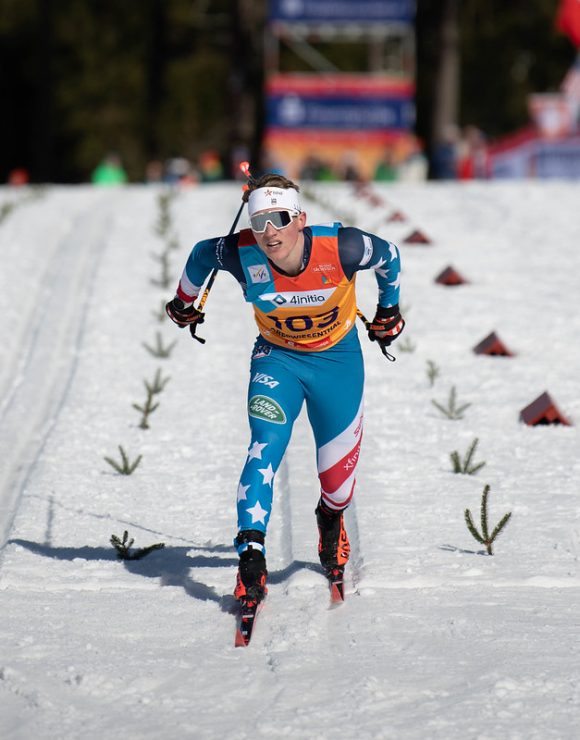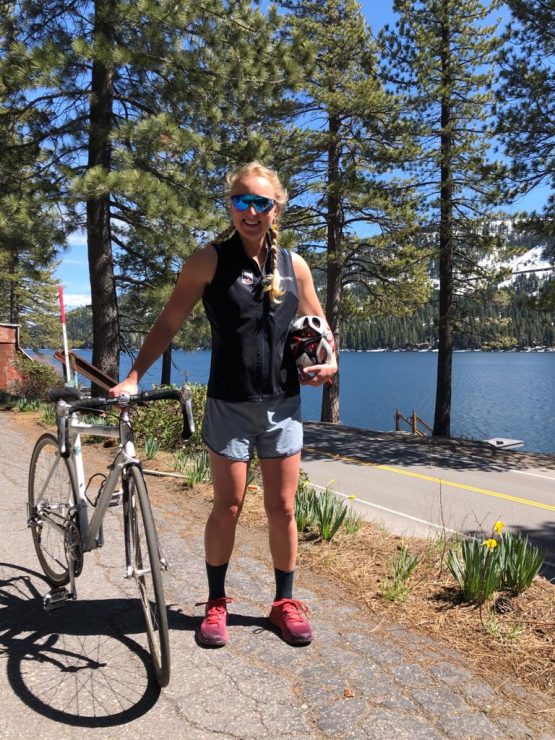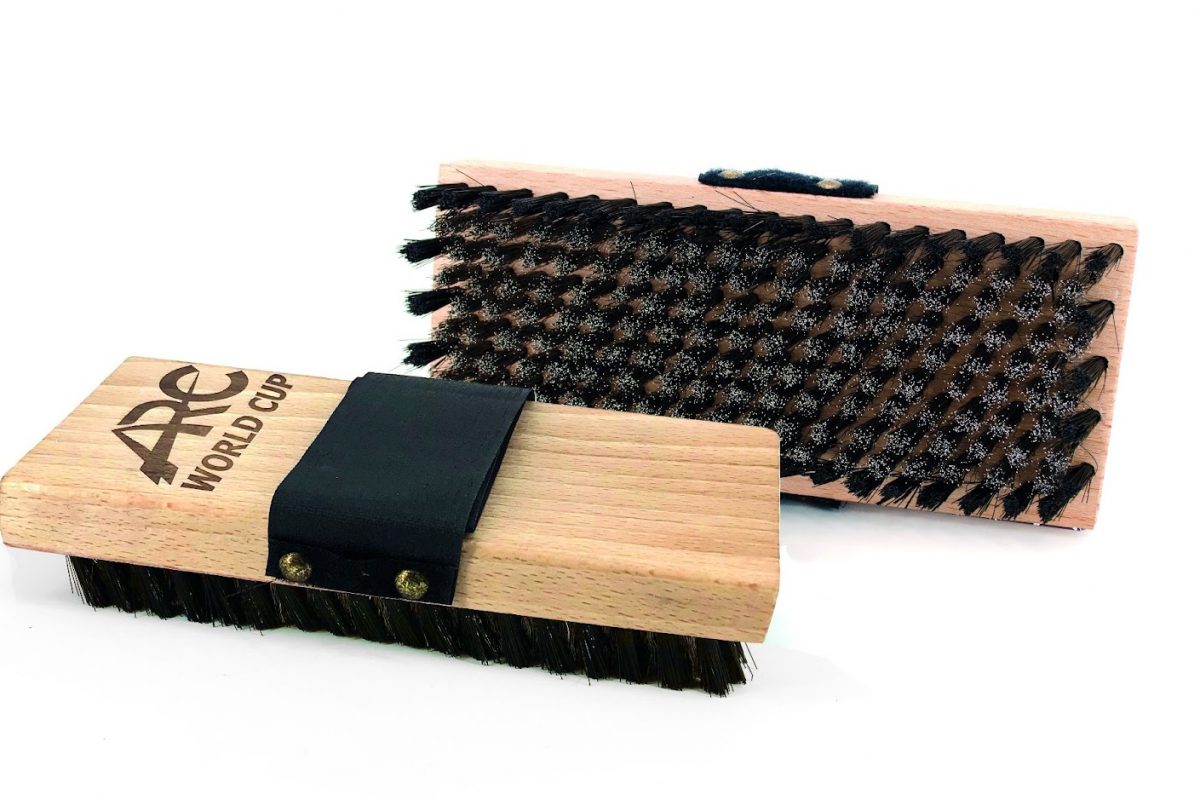Last week U.S. Ski and Snowboard announced the recipients of two awards. Gus Schumacher of Anchorage, Alaska, and newly minted U.S. B-Team member, won the Beck International Trophy recognizing the top athlete in international competition. He shared the honor with alpine skier Mikela Shiffrin.

Schumacher comes off a year during which he won the 10 k classic at World Juniors and anchored the men’s 4 x 5 k relay to their second consecutive Word Junior’s win in that event.
Hannah Halvorsen was honored as the recipient of the Buddy Werner Sportsmanship Award.The award recognizes the spirit of Buddy Werner, a former and beloved alpine member of the U.S.Ski Team. Halvorsen was struck by a car last year as she crossed a road in Anchorage, Alaska. Since then, Halvorsen has been rehabbing and preparing for an eventual return to elite level racing.

“This award immediately confirmed my suspicions that I am surrounded by a very loving bunch,” said Halvorsen. “Throughout this difficult season of injury, I haven’t gone a week without hearing from at least one of my teammates. Thank you to my teammates – not only for voting me for the Buddy Werner Award but for never forgetting about me. You guys are where I learned the value of sportsmanship,” Halvorsen posted on Instagram.
News from the International Ski Federation (FIS)
The International Ski Federation just concluded their spring meetings which were conducted online due to travel restrictions related to the pandemic. Much of what we are reporting below comes from the FIS site and are proposals that must be approved by the FIS Council.
The World Cup Calendar
The Cross-Country Committee was tasked with developing “A” and “B” calendar options. The “A” calendar is the current proposed race schedule approved pre-pandemic with some slight changes. The alternate “B” calendar “sees competitions taking place in the same country/blocks if travelling has to be minimized and to give opportunity for potential quarantine periods,” said FIS. National Federations and organizing committees have until mid-June to submit a modified plan to FIS. This includes the possibility of running events without spectators.
Other stipulations were proposed that help define a new look World Cup calendar. They include the following:
- A World Cup will be held when a minimum of seven of the top-10 nations (from the 2019-2020 standings) can attend the event.
- If the situation warrants, the “event preparation group” can limit the quota of athletes and staff. FIS writes, “The frame was set to a maximum of 4 athletes per nation plus the Overall World Cup Leader plus the COC leader.”
- The Lillehammer World Cups were originally slated to be held on Dec. 5 and 6. An additional sprint was added for Friday, Dec. 4. The Lillehammer races, as scheduled, could be in jeopardy since Norway’s Ministry of Justice and Emergency Management recently proposed a “temporary law” restricting foreigners from traveling to Norway until January 1, 2021.
- The Swiss Ski Federation asked that the start date and the respective races for the 2020-2021 Tour de Ski not be confirmed until summer.
- The races in Prémanon, France – slated for Feb. 5 – 7, 2021 were canceled and placed on the 2021-2022 race calendar.
World Cup National Quota Reduced
Starts acquired via Nations Group status often provide developing athletes an opportunity to gauge themselves against the world’s fastest. However, in recent years, when World Cups are held in Norway, for example, the leaderboard is often congested with homegrown talent. This may not be the reason FIS took the following action, but it is reducing the maximum quota of athletes for host nations. Last season host nations were allowed a maximum of 15 athletes per gender.
Next year, it has been proposed that host nations are allowed a maximum of ten athletes per gender with an additional two U23 athletes per gender.
Athletes Participating in Team Events will Earn Participants Individual World Cup Points
Next season, depending on the team event’s final results, 4 x relay teams will be awarded individual distance points whereas team sprint participants will be awarded individual sprint points. Both sets of points will count towards an athlete’s World Cup Overall standing and their respective sprint or distance standing.
Status of the Proposed FIS Fluoro Ban
Last November FIS communicated it would ban Fluoros for the 2020-2021 season. However, official guidelines detailing the ban and its enforcement have not been announced. Pierre Mignerey, the FIS Cross-Country race director, leads a working group responsible for the proposed ban. His group released little information during the recent FIS meetings. It appears a lab in Germany is developing fluoro testing equipment while the FIS working group continues to refine the wax ban’s protocols.
Swedish tabloid Expressen Sport reported early this week that FIS faces a potential lawsuit if it follows through with the fluoro ban. The Expressen article quoted Christer Majbäck, the owner of SkiGo wax, as speaking against the proposed ban. According to the article, Italian wax company Maplus will file the lawsuit.




